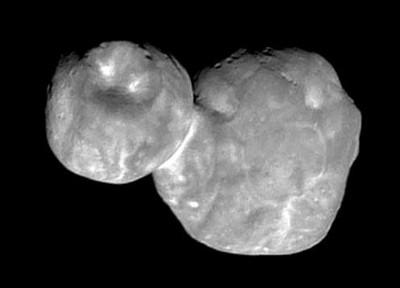News & articles
OU environmental researcher warns of danger of sleeping in bins
An OU academic is the author of a report released this week (Monday 24 February) which reveals statistics about the number of people who put their lives at risk through sleeping in bins.

Launch of 25 Years of Ed Tech
A book which traces trends over the past 25 years of educational technology by an OU academic and blogger on the future of education comes out this month (February 2020).

As Rishi Sunak becomes UK chancellor, a history of battles between No 10 and 11 Downing Street
The head that rolled most noisily in Boris Johnson’s cabinet reshuffle was Sajid Javid.

Why the most distant object ever visited looks like a snowman – flyby delivers results
Just over a year ago, courtesy of NASA’s New Horizons mission, we were treated to images of 2014MU69, a small object 6.6 billion kilometers from the sun – making it the most distant object to have ever been visited by a spacecraft.

OU ranked fifth for research student satisfaction
The OU has been ranked fifth out of 103 higher education institutions for overall postgraduate research student satisfaction in the national survey of research students.

Research into education report highlights ethical challenges around sharing personal data
‘Engaging with data ethics’ and ‘multisensory learning’ are two of the top 10 approaches to learning and teaching in this year’s Innovating Pedagogy report from The Open University.

OU academic to speak at the Tate Modern on the role of research in international solidarity
An OU academic is to highlight the role of research in strengthening solidarity between people with different experiences when she speaks at the Tate Modern, London this week (Thursday 23 January 2020).

Veganism has always been more about living an ethical life than just avoiding meat and dairy
“Ethical veganism” has been ruled to be a philosophical belief in the UK in an employment tribunal. During a case brought by vegan Jordi Casamitjana, who claims he was sacked by the League Against Cruel Sports because of his ethical veganism, presiding judge Robin Postle ruled he was “satisfied overwhelmingly that ethical veganism does constitute a philosophical belief”.

Developing new scholarly analytics tools for Computer Science editors
The OU’s Knowledge Media Institute (KMi) has been awarded £100,000 from Springer Nature, a leading academic and educational publisher, to extend their collaboration in the field of scholarly analytics.

New research into paediatric brain cancer
OU researchers have been awarded £19,500 to develop research into paediatric brain cancer.
Contact our news team
For all out of hours enquiries, please telephone +44 (0)7901 515891
Contact details